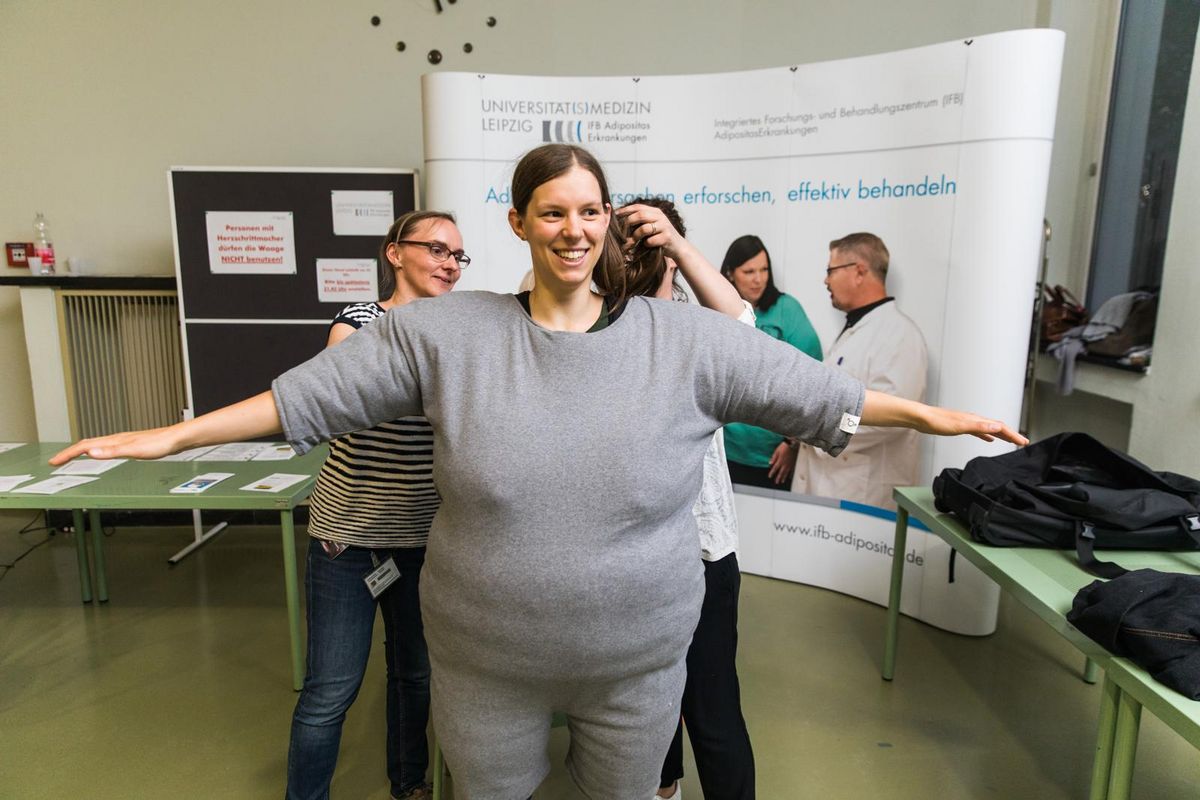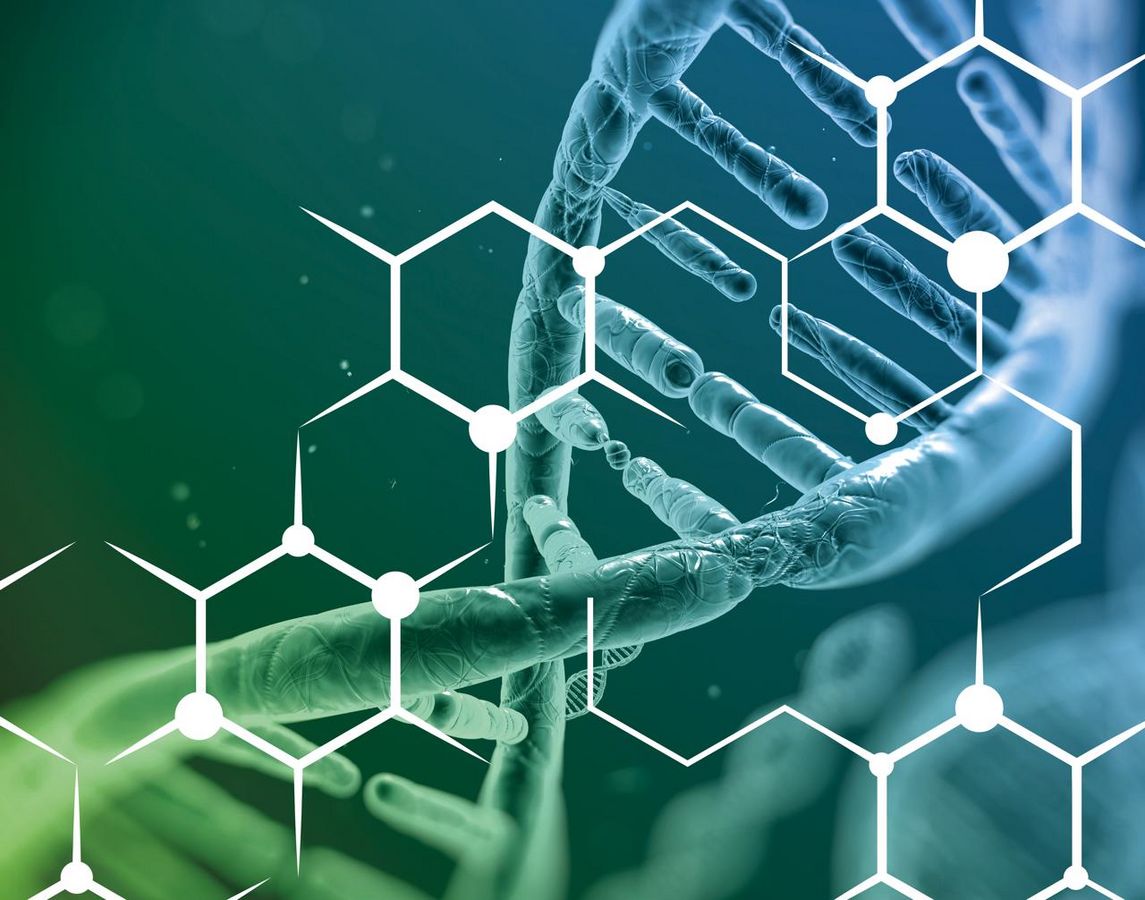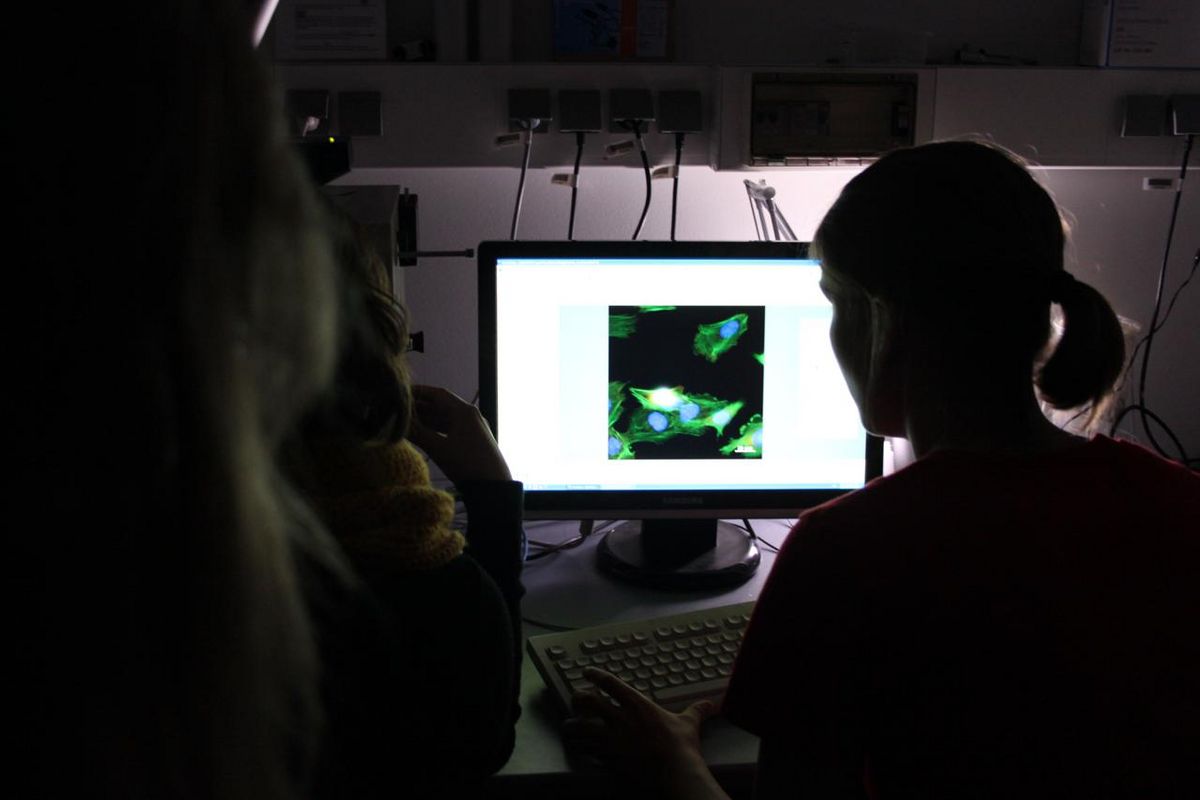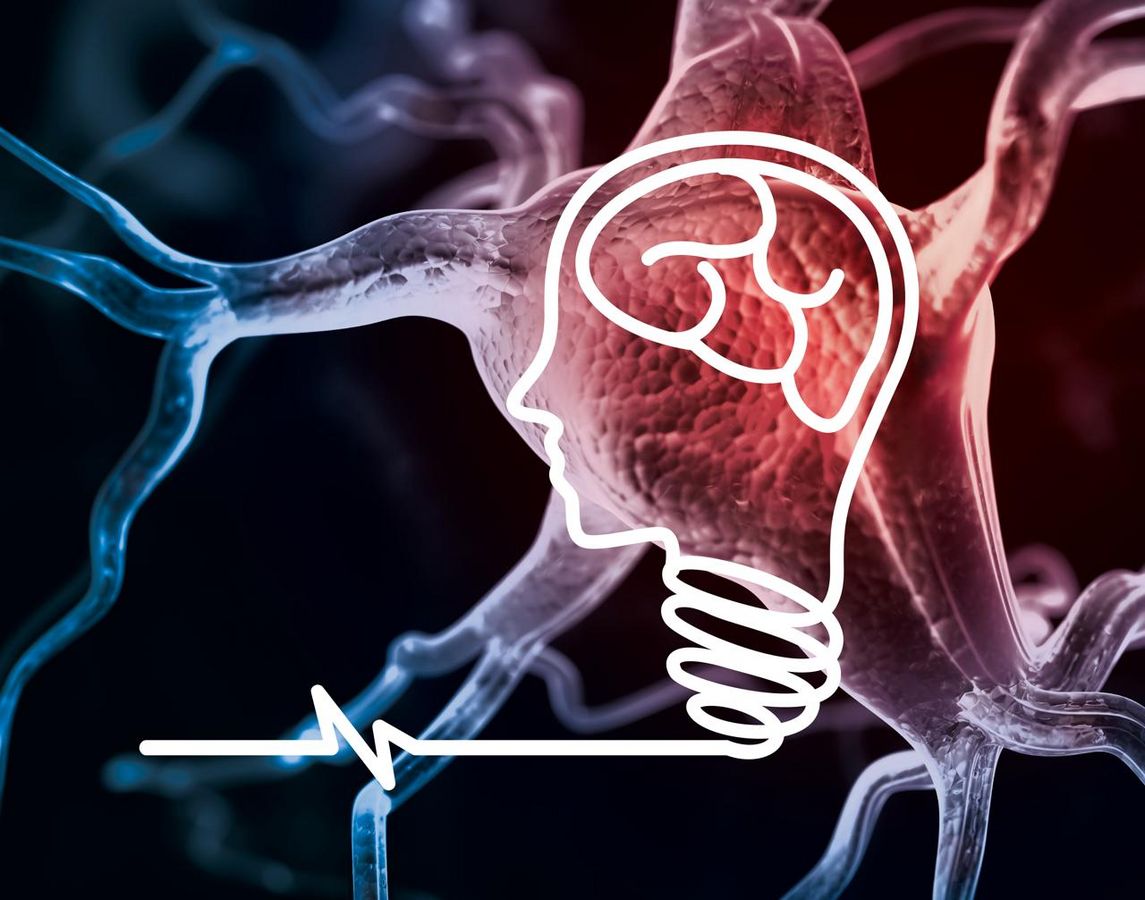The strategic research field comprises four research profile areas that investigate the foundations of life and health in humans, nature and the environment. Scholars from the life sciences, natural sciences, economics, the humanities, social sciences and computer science work together to advance basic and applied research and its transfer into society.
The impact of civilisation on humanity
Modern civilisation can contribute to or even cause functional and organic human diseases. We do not yet fully understand the exact mechanisms behind “modern” diseases associated with civilisation. Investigating them is the central goal of this research profile area.
The participating institutions are from the natural and life sciences as well as the humanities and social sciences. Their joint work has interwoven them into large research alliances.
The research focus is on interactions between inflammation, metabolism and regeneration processes, and their significance for modern, lifestyle-related diseases. While Leipzig University’s particular focus is on investigating the modern epidemic of obesity, the Modern Diseases research profile area also unites a number of cancer research projects.
The researchers develop innovative therapies, individually adapted preventive measures and campaign-based health recommendations. The basis for this is excellent collaborative research in the fields of biomedicine, psychology and sociocultural systems.
- Centre for Biotechnology and Biomedicine (BBZ)
- Faculty of Life Sciences
- Faculty of Medicine
- Faculty of Social Sciences and Philosophy
- Faculty of Veterinary Medicine
- Faculty of Mathematics and Computer Science
- Interdisciplinary Centre for Bioinformatics (IZBI)
- Center for Scalable Data Analytics and Artificial Intelligence (ScaDS.AI Dresden/Leipzig)
- AOK Plus “Leipzig Adipositasmanagement”
- Helmholtz Institute for Metabolic, Obesity and Vascular Research (HI-MAG)
- Helmholtz Munich (HMGU)
- Helmholtz Centre for Environmental Research (UFZ)
- Herzzentrum Leipzig
- LIFE - Leipziger Forschungszentrum für Zivilisationserkrankungen
- Max Planck Institute for Evolutionary Anthropology (MPI EVA)
- Max Planck Institute for Human Cognitive and Brain Sciences (MPI CBS)
- Max Planck Institute for Mathematics in the Sciences (MPI MiS)
- CRC 1052: Obesity Mechanisms
Spokesperson: Prof. Matthias Blüher (Department of Endocrinology, Nephrology, Rheumatology, Faculty of Medicine)
The Obesity Mechanisms Collaborative Research Centre has three main foci in its obesity research: overeating, fat deposition and inflammation, and altered adipokine secretion. The aim is to better understand the mechanisms that lead to extreme obesity. Graduates of the Obesity Mechanisms Integrated Research Training Group can acquire the knowledge gained in obesity research as well as additional practical skills, thus equipping them for successful scientific careers.
Learn more
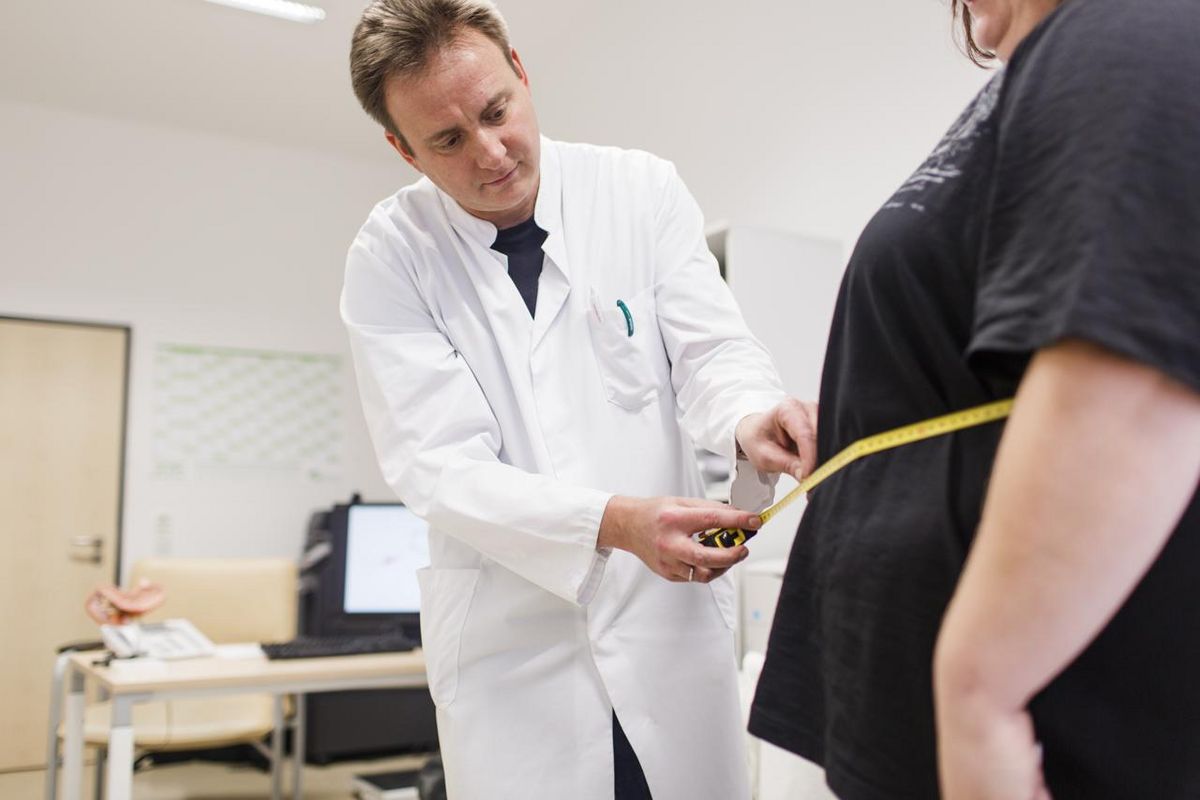
Clinician Scientist Program
- Modern Diseases - Leipzig Clinician Scientist Programm (MD-LEICS)
Spokesperson: Prof. Dr. med. Thomas Ebert (Clinic for Endocrinology, Nephrology, Rheumatology, Faculty of Medicine)
The Clinician-Scientist (CS) program MD-LEICS (Modern Diseases LEIpzig Clinician Scientists) aims to advance innovative, disease- and patient-oriented scientific training in civilization diseases. It focuses on obesity, eating disorders and cardiovascular-metabolic diseases. MD-LEICS provides a structured program for scientifically pre-qualified clinicians in specialist training in order to consolidate existing programs at the Faculty of Medicine in Leipzig.
learn more
Clinical Trials
- A Multi-Centred, Randomized, Controlled Trial Comparing Weight Loss in Endoscopically Implanted Duodenal-Jejunal Bypass Liner Versus Intragastric Balloons Versus a Sham Procedure
The clinical trial comparing weight loss in endoscopically implanted duodenal-jejunal bypass liners versus intragastric balloons versus a sham procedure compares sham endoscopies with the use of intragastric balloons and duodenal-jejunal bypass liners in the treatment of obesity.
Horizon Europe
- ERC Advanced grant: Tame thrombo-inflammation
Prof. Dr. Berend Isermann (Institute of Laboratory Medicine, Clinical Chemistry and Molecular Diagnostics, Faculty of Medicine) - CREATIC – Central European Advanced Therapy and Immunotherapy Centre
Project director: Dr. Dr. Maik Friedrich (Institute for Clinical Immunology, Faculty of Medicine) - CERTAINTY – A CEllulaR immunoTherapy virtuAl twin for personalIsed cancer treatmeNT
Project director: Prof. Dr. Thomas Neumuth (ICCAS - Innovation Center Computer Assisted Surgery) - ARTEMIS – AcceleRating the Translation of virtual twins towards a pErsonalised Management of fatty lIver patients
Project director: Dr. Stefan Höhme (IZBI - Interdisciplinary Centre for Bioinformatics) - PREPARE-TID – Pipeline for Rapid Diagnostics of Emergency Transboundary Infectious Diseases
Project director: Dr. Ahmed Abd El Wahed (Institute ffor Animal Hygiene and Public Veterinary Services, Faculty of Veterinary Medicine)
Horizon 2020
- ERC Starting grant: AxoMyoGlia – Spatio-functional cellular interplay in peripheral nerve diseases
Prof. Dr. Ruth Stassart (Paul-Flechsig-Institute for Nephrology, Faculty of Medicine)
learn more - ImSAVAR – Immune Safety Avatar: nonclinical mimicking of the immune system effects of immunomodulatory therapies
Project director: Prof. Dr. Markus Löffler (Institute for Medical Informatics, Statisctics, and Epidimiology, Faculty of Medicine)
Federal Ministry of Education and Research
- NAKO – German National Cohort (GNC) – National Cohort Study Centre for Research on Widespread Diseases
Project director: Professor Markus Löffler (Faculty of Medicine, Institute for Medical Informatics, Statistics and Epidemiology)
Learn more - DZD Munich – German Center for Diabetes Research
Project directir: Prof. Dr. Michael Stumvoll (Faculty of Medicine, Clinic for Endocrinology, Nephrology, Rheumatology)
learn more - SMITH – Smart Medical Information Technology for Healtcare
Project director: Prof. Dr. Markus Löffler (Faculty of Medicine, Institute for Medical Informatics, Statistics and Epidemiology)
learn more - ToSEE – Treatment of Benzodiazipine-Refractory Status Epilepticus in the Elderly Population
Project director: Professor Joseph Claßen (Faculty of Medicine, Department of Neurology, University Hospital)
Learn more - HerediCaRe – Establishment of a national registry to evaluate and improve risk-adapted prevention for hereditary breast and ovarian cancer
Project director: Dr. Christoph Engel (Faculty of Medicine, Institute for Medical Informatics, Statistics and Epidemiology)
learn more - MR-Thromboses – MR-supported minimally invasive diagnosis and treatment of thromboses
Subproject: Research into an optimized manufacturing process for MR-compatible nitinol constructs
Project director: Prof. Dr. Andreas Melzer (Innovation Center Computer Assisted Surgery (ICCAS))
learn more - ELVIS-Study – Nasal high-flow versus non-invasive ventilation in the treatment of acute acidotic hypercapnic exacerbation of chronic obstructive pulmonary disease (AECOPD)
Project director: Prof. Dr. med. Hubert Wirtz (Medical Department II – Gastroenterology, Hepatology, Infectious Diseases, Pneumology; Center for Clinical Studies)
learn more - CORALA II – Long-term need for Ranibizumab injections with or without early targeted peripheral laser photocoagulation for the treatment of macular edema due to central retinal vein occlusion
Project director: Prof. Dr. med. Matus Rehak (Faculty of Medicine, Department of Ophthalmology)
learn more - SUCEED-F – Study of frequent environmental exposures and diseases in childhood and adolescence: feasibility
Project director: Prof. Dr. med. Antje Körner (Faculty of Medicine, Department of Pediatrics)
learn more - SYMPATH – Systems medicine of pneumonia-aggravated arteriosclerosis
Project director: Prof. Dr. Markus Scholz (Faculty of Medicine, Institute for Medical Informatics, Statistics and Epidemiology)
learn more - LiSymKrebs – DEEP-HCC – Detailed analysis of the spatial organization of the development of hepatocellular carcinoma
Project director: Prof. Dr. Daniel Seehofer (Faculty of Medicine, Clinic for Visceral, Transplantation, Thoracic and Vascular Surgery)
learn more - LiSymKrebs – SMART-NAFDL – A systems medicine approach for the early detection and prevention of hepatocellular carcinoma in non-alcoholic fatty liver disease
Project director: Prof. Dr. Thomas Berg (Faculty of Medicine, Medical Department II – Gastroenterology, Hepatology, Infectious Diseases, Pneumology)
learn more - SaxoCell – Living medications
Project directors: Prof. Dr. Uwe Platzbecker, Dr. Vladan Vucinic, Dr. Beatrice Sara Berneck, Prof. Dr. Jan C. Simon, Dr. Kristin Reiche, Prof. Dr. Achim Aigner, Prof. Dr. Thomas Neumuth, Prof. Dr. Ulrich Hacker (Faculty of Medicine)
learn more - SmartBWL – Smartphone-assisted behavioral therapy for weight loss in adults with severe obesity
Project director: Prof. Dr. Anja Hilbert (Faculty of Medicine, Clinic for Psychosomatic Medicine and Psychotherapy)
learn more - @ktivPLUS – Obesity and depression- development, acceptance, effectiveness and cost-effectiveness of a self-help strengthening online coach
Project director: Dr. Margit Löbner (Faculty of Medicine, Institute for Social Medicine, Work Medicine and Public Health)
learn more - CAP-TSD – Causal analysis and predictive modeling of molecular and clinical time series data of pneumonia patients: Subproject A
Project director: Prof. Dr. Markus Scholz (Faculty of Medicine, Institute for Medical Informatics, Statistics and Epidemiology)
learn more - 3MP-FUS – Neuromodulation in rare neuropsychiatric disorders with focused multi-modal-multi-parameter ultrasound
Sub project: Experimental technical and pre-clinical evaluation of the FUS system, clinical requirements definition and integration
Project director: Prof. Dr. Andreas Melzer (Innovation Center Computer Assisted Surgery (ICCAS))
learn more - 6G Health
Project director: Prof. Dr. Markus Löffler (Faculty of Medicine, Institute for Medical Informatics, Statistics and Epidemiology)
learn more - FOMO – Nanoporous shape-matched glass monoliths as drug depot systems for drug targeting in dentistry
Project director: PD Dr. rer. nat. Andreas König (Faculty of Medicine, Polyclinic for Dental Prosthetics and Materials Science)
learn more - PROGNOSIS – Pandemic-related resource requirements of hospitals modeling of incidence, bed occupancy, personnel planning and supply chains
Project director: Prof. Dr. Markus Scholz (Faculty of Medicine, Institute for Medical Informatics, Statistics and Epidemiology)
learn more - GeMTeX MII – Cross-consortia use case of the medical informatics initiative: Automated processing of German clinical texts
Project director: Prof. Dr. Martin Boeker / Prof. Dr. Markus Löffler (Faculty of Medicine, Institute for Medical Informatics, Statistics and Epidemiology)
learn more - LE-REP – Interdisciplinary junior research center for reproductive health
Project director: Prof. Dr. Bahriye Aktas (Faculty of Medicine, Division of Obstetrics)
learn more - INTERPOLAR – Reducing medication problems and drug interactions (USE Case)
Project director: Prof. Dr. Markus Löffler (Faculty of Medicine, Institute for Medical Informatics, Statistics and Epidemiology)
learn more - PrivateAIM – Privacy-protecting analytics in medicine
Project director: Prof. Dr. Toralf Kirsten (Faculty of Medicine, Institute for Medical Informatics, Statistics and Epidemiology)
learn more - NUM DIZ – Network of data integration centers of university medicine
Project director: Dr. Thomas Wendt (Faculty of Medicine, Data Integration Center)
learn more - ADAPT – African "One Health"-Network for Disease Prevention
Project director: Prof. Dr. Uwe Truyen (Institut for Animal Hygiene and Public Veterinary Services, Faculty of Veterinary Medicine)
Learn More - DZKJ – German Center for Pediatrics and Adolescent Medicine, Development Funding, Leipzig/Dresden site
Project director: Prof. Dr. Antje Körner (Faculty of Medicine, Department of Pediatrics)
Learn More - ScaDS.AI – Center for Scalable Data Analytics and Artificial Intelligence Dresden/Leipzig
Scientific Coordinator: Professor Wolfgang E. Nagel (TU Dresden)
Deputy: Professor Erhard Rahm (Faculty of Mathematics and Computer Science, Institute of Computer Science)
Learn more - Integrated Resesarch and Treatment Center (IFB) Obesity Diseases
Director: Professor Michael Stumvoll (Faculty of Medicine, University of Leipzig Medical Center, Clinic for Endocrinologyie, Nephrology, Rheumatology)
The IFB researched and treated morbid overweight (obesity) and its accompanying diseases in children, adolescents and adults. It was a joint center of the Leipzig University and University of Leipzig Medical Center.
learn more
Federal Ministry for Economic Affairs and Climate Action
- KIKS – Artificial Intelligence for Clinical Studies
Project director: Professor Thomas Neumuth (Faculty of Medicine, Innovation Center Computer Assisted Surgery – ICCAS)
Learn more - KliNet5G – Clinical network via 5G
Project director: Professor Thomas Neumuth (Faculty of Medicine, Innovation Center Computer Assisted Surgery – ICCAS)
learn more
Federal Ministry of Labour and Social Affairs
- LIPSY – Leipziger Individual Placement and Support for mentally ill people
Project director: Prof. Dr. Steffi G. Riedel-Heller (Faculty of Medicine, Institute for Social Medicine, Work Medicine and Public Health)
learn more - Endowed Chair of Social Psychiatric Participation Research, Department of Sociology
Project director: Prof. Dr. Georg Schomerus (Faculty of Medicine, Department of Psychiatry and Psychotherapy, University of Leipzig Medical Center)
learn more
Joint Committee of the Federal Government
- HITS – Heart failure - Individual Training, Telemonitoring and Selfmanagement
Project director: Professor Martin Busse (Faculty of Sport Science, Institute of Sport Medicine and Prevention)
Learn more
Saxon State Ministry of Science and the Arts
- Lung microbiome model - A modular microbiome host model of the lung from the 3D printer to study the pharmacokinetics of pulmonary drugs and xenobiotics
Project director: Prof. Dr. Leonard Kaysser (Faculty of Medicine, Institute for Drug Design)
Learn more - MALT-Patch
Project director: Prof. Dr. Michaela Schulz-Siegmund (Institut for Pharmacy, Faculty of Medicine)
Learn More - Transfer Technologies for the Validation of Proteine- and Peptide Therapeutics
Project director: Jun-Prof. Dr. Clara Schoeder (Institute for Drug Design, Faculty of Medicine)
Learn more
- Tina Malti: Alexander von Humboldt Professorship for Developmental Psychology
Tina Malti was awarded the Humboldt Professorship for Developmental Psychology in 2022. She conducts research at the Faculty of Education and the Faculty of Medicine and as Director of the newly founded Humboldt Research Center for Child Development (Humankind). In addition to basic research on the socio-emotional development of children, Tina Malti would also like to transfer her research findings into clinical practice. - Sayan Mukherjee: Alexander von Humboldt Professorship for Artificial Intelligence
Sayan Mukherjee was awarded the Alexander von Humboldt Professorship for Artifical Intelligence in 2022. The mathematician, statistician and computer scientist took up his professorship at the Center for Scalable Data Analytics and Artificial Intelligence (ScaDS.AI) Dresden/Leipzig, and also established a research group at the Max Planck Institute for Mathematics in the Sciences. His expertise in topological data analysis was expected to pave new ways in the analysis of biological and medical data, opening up an innovative branch of research in precision medicine.
Sayan Mukherjee passed away unexpectedly in Leipzig on 31 March 2025. - Jens Meiler: Alexander von Humboldt-Professorship for Pharmaceutcal Chemistry
Jens Meiler was awarded the Humboldt Professorship in 2019. As a pharmaceutical chemist and bioinformatician, he conducts research at the interface of biology, physics, chemistry and computer science. At the new Institute for Drug Discovery, Meiler brings together computer-aided processes and experimental methods to develop new pharmaceuticals.He has also established a “European Center for ROSETTA Therapeutic Design” in Leipzig with the further development of the ROSETTA program.
Two major challenges of our time, the transformation of energy systems and the sustainable handling of biodiversity as a resource, are the focus of the research activities in this profile area.
The research interests lie in developing environmentally friendly catalytic processes, identifying innovative technologies and solution strategies for energy production, as well as the fundamentals of biodiversity conservation. The aim is to link these three areas of sustainability research:
- How can economically efficient energy landscapes be designed to maximise biodiversity and ecosystem services?
- How can the use of biomass as a raw material base be optimised by new catalytic processes?
- How can new catalytic processes optimise the use of biomass as a raw material base?
The spectrum of approaches ranges from laboratory development and prognosis models to major ecological experiments on the landscape scale.
- Centre for Biotechnology and Biomedicine (BBZ)
- Deutsches Biomasseforschungszentrum (DBFZ)
- German Centre for Integrative Biodiversity Research (iDiv) Halle-Jena-Leipzig
- Faculty of Life Sciences
- Faculty of Chemistry and Mineralogy
- Faculty of History, Arts and Area Studies
- Faculty of Mathematics and Computer Science
- Faculty of Physics and Earth System Sciences
- Faculty of Social Sciences and Philosophy
- Fraunhofer Center for International Management and Knowledge Economy (IMW)
- Helmholtz Centre for Environmental Research (UFZ)
- Faculty of Law
- Leibniz Institute of Surface Engineering (IOM)
- Leibniz Institute for Tropospheric Research (TROPOS)
- Max Planck Institute for Evolutionary Anthropology (MPI EVA)
- Max-Planck-Institute for Biogeochemistry (MPI BGC)
- Max-PLanck-Institute for Geoanthropology (MPI GEA)
- Faculty of Economics and Management Science
- Remote Sensing Centre for Earth System Research
The German Research Foundation (DFG) supports a large number of projects at our university in cooperation with other scientific institutions. The following are the most important collaborative projects in the field of Sustainable Systems and Biodiversity:
- German Centre for Integrative Biodiversity Research (iDiv) Halle-Jena-Leipzig
Spokesperson: Professor Martin Quaas (Faculty of Economics and Management Science)
In collaboration with the Martin Luther University Halle-Wittenberg (MLU), the Friedrich Schiller University Jena (FSU) and Leipzig’s Helmholtz Centre for Environmental Research (UFZ), our university is currently home to the German Centre for Integrative Biodiversity Research (iDiv) Halle-Jena-Leipzig. Since 2012, researchers from more than 30 nations have been investigating the largely damaging influence of human activity on fauna and flora, developing a scientific basis for the sustainable stewardship of our planet’s biodiversity.
learn more - CRC/Tranregio 172: Arctic Amplification
Spokesperson: Professor Manfred Wendisch (Faculty for Physics and Earth Systems Sciences, Institute of Meteorology)
With the CRC/Transregio 172, we are conducting systematic large-scale research in the field of Arctic climate change (AC)³ for the first time in Germany. Applying a variety of different methods, the aim of the wide-ranging research alliance with the University of Bremen, the University of Cologne, the Alfred Wegener Institute and the Leibniz Institute for Tropospheric Research is to observe climatic changes in the Arctic over long periods of time. On the basis of observations of measuring instruments on satellites, aircraft, airborne balloon platforms and research vessels, but also the results of selected ground-based monitoring stations, the researchers are improving the reliability of models for predicting the warming already recorded in the Arctic.
learn more

- RTG 2939: Economics of Connected Natural Commons: Atmosphere and Biodiversity - Eco-N
Spokesperson: Professor Dr. Martin Quaas (Faculty of Economics and Management Science, and iDiv)
The RTG 2939 “Economics of Connected Natural Commons: Atmosphere and Biodiversity - Eco-N” develops an integrative perspective on the sustainable use of natural commons in the area of the atmosphere - namely aerosols, regional climate and urban air - and biodiversity - namely forests and soils. The RTG will begin its research work in fall 2024.
Learn More - RTG 2324: TreeDi – Tree Diversity Interactions
Spokesperson: Professor Dr. Helge Bruelheide (Martin-Luther-Universität Halle-Wittenberg, Institut für Biologie)
The International Research Training Group “TreeDi – Tree Diversity Interactions: The Role of Tree-Tree Interactions in Local Neighbourhoods in Chinese Subtropical Forests” led by the German Centre for Integrative Biodiversity Research (iDiv) Halle-Jena-Leipzig together with the University of Chinese Academy of Sciences (UCAS) in China is investigating how tree-tree interactions in local neighbourhoods translate into the observed positive tree species richness effects on key ecosystem functions at the community level. The international qualification programme provides for intensive Chinese-German cultural exchange during a six-month research stay in the partner country. There is also a joint doctoral candidate advisory committee with Chinese and German project leaders and close cooperation with leading figures of biodiversity research.
Learn more - FOR 5000: Biotic Interactions, Community Assembly, and Eco-Evolutionary Dynamics as Drivers of Long-Term Biodiversity–Ecosystem Functioning Relationships
Spokesperson: Professor Dr. Nico Eisenhauer (Faculty of Life Sciences, iDiv)
The central aim of Research Unit 5000 – Biotic Interactions, Community Assembly, and Eco-Evolutionary Dynamics as Drivers of Long-Term Biodiversity–Ecosystem Functioning Relationships – is to find out which mechanisms influence biodiversity–ecosystem functioning in the short and long term. To this end, it applies new experimental and analytical methods in one of the world’s longest-running biodiversity experiments: the Jena Experiment. Professor Nico Eisenhauer from the German Centre for Integrative Biodiversity Research (iDiv) Halle-Jena-Leipzig heads the research group, in which scientists from the fields of ecology, biochemistry and microbiology work together on an interdisciplinary basis.
Learn more - Atmospheric and Earth System Research with the “High Altitude and Long Range Research Aircraft” (HALO) (Infrastructure SPP 1294)
Spokesperson: Professor Dr. Manfred Wendisch (Faculty of Physics and Earth System Sciences, Leipzig Institute for Meteorology)
The Infrastructure Priority Programme 1294, Atmospheric and Earth System Research with the “High Altitude and Long Range Research Aircraft” (HALO), has received DFG funding since 2017. The HALO research aircraft is used to study atmospheric and geophysical processes. The focus is on answering questions of climate and environmental science.
Learn more - SPP 2361: On the Way to the Fluvial Anthroposphere
Spokesperson: Professor. Dr. Christoph Zielhofer (Faculty for Physics and Earth System Sciences, Institute of Geography)
Priority Programme 2361, On the Way to the Fluvial Anthroposphere, explores the interactions between human societies and pre-industrial floodplains in Central Europe. The core research question of this Priority Programme is the extent to which humans have had an influence on changes to floodplains, and since when. Leipzig University, the University of Tübingen and the Technical University of Darmstadt developed the framework programme together.
Learn more
- ERC Starting Grant: “Forest vulnerability to compound extremes and disturbances in a changing climate”
Director: Professor Ana Bastos (Faculty of Physics and Earth System Sciences)
learn more - SOLO – Soils for Europe
Coordinator: Dr Carlos António Bastos de Morais Guerra (iDiv)
learn more
Federal Ministry of Education and Research
- ZK-FA – Faktencheck Artenvielfalt
Project director: Prof. Dr. Christian Wirth (Faculty for Life Sciences and iDiv)
learn more - ValuGaps – Comprehensive valorization of natural capital in Germany: approaches and methods for dealing with scarce information and uncertainties
Project director: Dr. Jasper Nikolaus Meya (iDiv)
learn more - ScaDS.AI – Center for Scalable Data Analytics and Artificial Intelligence Dresden/Leipzig
Scientific Coordinator: Professor Wolfgang E. Nagel (TU Dresden)
Deputy: Professor Erhard Rahm (Faculty of Mathematics and Computer Science, Institute of Computer Science)
Learn more - marEEshift – Marine Ecological-Economic Systems in the Western Baltic Sea and Beyond: Generic Models, Coordination and Communication
Project director: Professor Martin Quaas (Faculty of Economics and Management Science, Institute for Resource Management)
Learn more - T!Raum-Initiative: ReWass – Regional development and water management under water scarcity
Project director:Dr. Stefan Geyler (Faculty of Economics and Management Science, Institute for Infrastructure and Resource Management)
Learn More - InnoLogBat – E-mobility warehouse logistics: innovation lab for battery logistics in e-mobility
Sub-project: Studies in the field of the automotive circular economy and ML-based service portfolio for the storage logistics of batteries for e-mobility
Project director: Prof. Dr. Bogdan Franczyk (Faculty of Economics and Management Science, Institute Systems Services)
learn more - Junior Research Group: MultiplEE: Sustainable Deployment of Renewable Energies with Multiple Environmental impacts – Policy Strategies to Address Environmental Trade-Offs of the German Energy Transition
Project director: Dr Paul Lehmann (Faculty of Economics and Management Science, Institute for Infrastructure and Resource Management)
Learn more
Federal Ministry for Economic Affairs and Climate Action
- b-ACT matter – Research- und Transfer Center for Bioactive Matter
Project director: Prof. Dr. Tilo Pompe (Faculty for Life Sciences, Institute of Biochemistry); Prof. Dr. Frank Cichos (Fakulty for Physics and Earth Systems Sciences, Peter-Debye-Institute for Physics of Soft Matter)
learn more - MoLeWa – Regional Transformation Network - Development and Implementation of a Regional Transformation Strategy in the Automotive and Supplier Industry and Industry-Related Service Sectors in the Transformation Region Leipzig
Project director: Prof. Dr. Bogdan Franczyk (Faculty of Economics and Management Science, Institute for Information Systems)
learn more
Federal Ministry for Environment, Nature Conservation and Nuclear Safety
- Lebendige Luppe – Promoting ecosystem services and biodiversity through floodplain revitalization in an urban context
Project director: Prof. Dr. Sylke Nissen (Faculty for Social Sciences and Philosophy, Institute for Sociology); Prof. Dr. Christian Wirth (Faculty for Life Sciences and iDiv)
learn more
Federal Ministry of Food and Agriculture
- Miro – Central German innovation region for fruit growing
Project director: Prof. Dr. Bogdan Franczyk (Faculty of Economics and Management Science, Institute for Information Systems)
learn more
The Volkswagen Foundation is supporting Dr Carsten Meyer, a Leipzig University researcher based at iDiv, with one of its ‘Freigeist’ Fellowships.
- ‘Freigeist’ Fellowship: Modelling the Socioeconomic Forces behind 21st-Century Biodiversity Loss: A Macroscopic Approach to Turn Complexity into Opportunities for Action
LEARN MORE
The Leibniz ScienceCampus "Smoke and Bioaerosols in Climate Change (BioSmoke)" investigates the links between wildfires and climate change. Collaboration partners are the Leibniz-Institute for Tropospheric Research, the Helmholtz Centre for Environmental Research, the German Institute for Biomass Research and Leipzig University.
The International Max Planck Research School “The Leipzig School of Human Origins” (IMPRS LSHO) is a unique postgraduate programme that combines different disciplines to study the evolutionary history and origins of humans and other primates. The Leipzig School of Human Origins is a collaboration between Leipzig University and the Max Planck Institute for Evolutionary Anthropology.
The research profile area of Molecular and Cellular Communication in Therapy and Diagnostics is devoted to investigating complex cell processes.
Communication between molecules, and interactions between cells and between molecules and cells, are essential foundations for the biochemical exchange of information. The research profile area aims to identify, characterise and understand these interactions. The researchers approach this from different angles: why does a cell change? How does it react to certain external influences? The research considers both human and animal cells. For example, the scientists are investigating clinical pictures of cancer and obesity as well as wound healing. Their research results should contribute to the development of new drugs and therapies.
- Centre for Biotechnology and Biomedicine (BBZ)
- Faculty of Life Sciences
- Faculty of Chemistry and Mineralogy
- Faculty of Mathematics and Computer Science
- Faculty of Physics and Earth System Sciences
- Helmholtz Zentrum Dresden-Rossendorf (HZDR), Research Site Leipzig
- Helmholtz Centre for Environmental Research (UFZ)
- Faculty of Medicine
- Faculty of Veterinary Medicine
- CRC1423: Structural Dynamics of GPCR Activation and Signal Transduction
Spokesperson: Prof. Dr. Annette Beck-Sickinger (Faculty for Life Sciences, Institute of Biochemistry)
Cells communicate with each other and their environment via receptors. G protein-coupled receptors (GPCRs) are the largest group of membrane receptors and found in almost all living organisms. In CRC 1423, “Structural Dynamics of GPCR Activation and Signal Transduction”, Leipzig University researchers from the life sciences, medicine, pharmacy and bioinformatics are investigating interactions between peptide receptors and adhesion receptors – GPCRs that have so far been the subject of little research. To this end, they are collaborating with partners at the Charité university hospital in Berlin, the Helmholtz Association’s Max Delbrück Center for Molecular Medicine, and the Martin Luther University Halle-Wittenberg. One of the CRC’s goals is to clarify the dynamic structural states of these GPCRs in order to understand their functions. This could lead to the development of novel therapeutics for this class of GPCRs. Doctoral candidates at this CRC are trained in its integrated Research Training Group.
Learn more - CRC 1052: Obesity Mechanisms
Spokesperson: Prof. Dr. Matthias Blüher (Faculty of Medicine, Department of Endocrinology, Nephrology, Rheumatology)
The Obesity Mechanisms Collaborative Research Centre has been examining three main research foci since 2013: overeating, fat deposition and inflammation, and altered adipokine secretion. In cooperation with three partner institutions – the Max Planck Institute for Human Cognitive and Brain Sciences, the Helmholtz Centre for Environmental Research (UFZ) and Ben-Gurion University of the Negev (Israel) – the researchers aim to enhance our understanding of obesity as a multifactorial and socially relevant disease.
LEARN MORE - Emmy Noether Junior Research Group: Antigen Identification and Characterization of Adaptive Immune Responses in Severe Equine Asthma
Group leader: Dr. Christiane Schnabel (Faculty of Veterinary Medicine, Center for Biotechnology and Biomedicine)
This Junior Research Group does research on the causes severe asthma in horses. The name of the project is ”Antigen Identification and Characterization of Adaptive Immune Responses in Severe Equine Asthma.“ It focuses on the one hand on anitgen identification. On the other, the researchers are seeking adaptive immune responses to specific components from hay dust for the pathogenesis of severe equine asthma.
Learn more
- Jens Meiler was awarded a Humboldt Professorship in 2019. A pharmaceutical chemist and bioinformatics researcher, he conducts research where biology, physics, chemistry and computer science meet. At the new Institute for Innovation in Rational Drug Design, Meiler will carefully combine computer-aided processes with experimental methods in order to develop new pharmaceuticals. This will directly support the research profile area of Molecular and Cellular Communication in Therapy and Diagnostics – with whose scientists he already cooperated extensively before the award. Joint projects will further expand this cooperation in the future.
- ERC Consolidator Grant: PreSynPlast – Molecular mechanisms of prsynaptic plasticity
Professor Dr. Stefan Hallermann (Faculty of Medicine, Carl-Ludwig-Institute for Physiology) - ERC Starting Grant: AxoMyoGlia – Spatio-functional cellular interplay in peripheral diseases
Professor Dr. Ruth Stassart (Faculty of Medicine, Paul-Flechsig-Institute for Neuropathology)
Horizon Europe:
- CREATIC – Central European Advanced Therapy and Immunotherapy Centre
Project director: Dr. Dr. Maik Friedrich (Faculty of Medicine, Institute for CLinical Immunology) - CERTAINTY – A CEllulaR immunoTherapy virtuAl twin for personalIsed cancer treatmeNT
Project director: Professor Dr. Thomas Neumuth (ICCAS - Innovation Center Computer Assisted Surgery)
Federal Ministry of Education and Research
- RiboAss – Specific inhibition of the ribosomal 50S subunit assembly in bacteria as novel bactericidal mechanism unexploited by current Antibiotics
Project director: Professor Ralf Hoffmann (Faculty of Chemistry and Mineralogy, Centre for Biotechnology and Biomedicine)
Learn more - SaxoCell – Living Medications
Project director: Prof. Dr. Uwe Platzbecker, Dr. Vladan Vucinic, Dr. Beatrice Sara Berneck, Prof. Dr. Jan C. Simon, Dr. Kristin Reiche, Prof. Dr. Achim Aigner, Prof. Dr. Thomas Neumuth, Prof. Dr. Ulrich Hacker (Faculty of Medicine)
learn more - FOMO – Nanoporous shape-matched glass monoliths as drug depot systems for drug targeting in dentistry
Project director: PD Dr. rer. nat. Andreas König (Faculty of Medicine, Department for Dental Prosthetics and Materials Science)
learn more - INTERPOLAR – Reducing medication related problems and drug interactions (USE Case)
Project director: Prof. Dr. Markus Löffler (Faculty of Medicine, Institute for Medical Informatics, Statistics and Epidemiology)
learn more
Federal Ministry for Economic Affairs and Climate Action
- b-ACT matter – Research and Transfer Center for Bioactive Matter
Project directors: Prof. Dr. Tilo Pompe (Faculty for Life Sciences, Institute of Biochemistry); Prof. Dr. Frank Cichos (Faculty of Physics and Earth Systems Sciences, Peter-Debye-Institute for Soft Matter Physics)
learn more
Federal Ministry of Food and Agriculture
- In-Ovo-LC-MS — Application of endocrinological in-ovo sex determination in the domestic chicken using liquid chromatography-mass spectrometry (LC-MS) for the development of marketable concepts
Project director: Prof. Dr. Almuth Einspanier (Faculty of Veterinary Medicine, Institute of Physiological Chemistry)
learn more
Saxon State Ministry of Science and the Arts
- Innovative Strategies for bIoactive / antibacterial advanceD prosthEses
Project director: Professor Anette Beck-Sickinger (Faculty of Life Sciences, Institute of Biochemistry)
Learn more - Lung microbiome model - A modular microbiome host model of the lung from the 3D printer to study the pharmacokinetics of pulmonary drugs and xenobiotics
Project director: Prof. Dr. Leonard Kaysser (Institute for Drug Design, Faculty of Medicine)
Learn more - Transfer Technologies for the Validation of Proteine- and Peptide Therapeutics
Project director: Jun-Prof. Dr. Clara Schoeder (Institute for Drug Design, Faculty of Medicine)
Learn more
This research profile area investigates the basics of nervous system function, including movement control, speech, attention, perception and memory, and their variability.
The researchers investigate specific aspects of human behaviour and the human brain, early childhood and evolutionary development as well as neurological and psychiatric diseases such as depression, dementia, stroke, and attention and behavioural disorders. How is the release of neurotransmitters controlled? How does the brain recover from a stroke? What do hibernation and Alzheimer’s disease have in common? The Brain Dynamics research profile area concentrates research into the brain, its diseases and new treatment options.
- Faculty of Life Sciences
- Faculty of Physics and Earth System Sciences
- Max Planck Institute for Evolutionary Anthropology (MPI EVA)
- Max Planck Institute for Human Cognitive and Brain Sciences (MPI CBS)
- Max Planck Institute for Mathematics in the Sciences (MPI MiS)
- Faculty of Medicine
- Faculty of Sport Science
- Saxon Incubator for Clinical Translation
- Faculty of Veterinary Medicine
- CRC 1052: Obesity Mechanisms
Spokesperson: Prof. Dr. Matthias Blüher (Faculty of Medicine, Department of Endocrinology, Nephrology, Rheumatology)
The Obesity Mechanisms Collaborative Research Centre has been examining three main research foci since 2013: overeating, fat deposition and inflammation, and altered adipokine secretion. In cooperation with three partner institutions – the Max Planck Institute for Human Cognitive and Brain Sciences, the Helmholtz Centre for Environmental Research (UFZ) and Ben-Gurion University of the Negev (Israel) – the researchers aim to enhance our understanding of obesity as a multifactorial and socially relevant disease.
Learn more
- ERC Consolidator Grant: The Flexible Brain: (Re-)shaping Adaptation in Semantic Cognition
Awardee: Professor Dr. Gesa Hartwigsen (Faculty for Life Sciences, Wilhelm Wundt Institute for Psychology) - ERC Consolidator Grant: PreSynPlast - Molecular mechanisms of presynaptic plasticity
Awardee: Professor Dr. Stefan Hallermann (Faculty of Medicine, Carl-Ludwig-Institute for Physiology) - ERC Starting Grant: AxoMyoGlia – Spatio-functional cellular interplay in peripheral nerve diseases
Awardee: Professor Dr. Ruth Stassart (Faculty of Medicine, Paul-Flechsig-Institute for Neuropathology)
Federal Ministry of Education and Research
- ToSEE – Treatment of Benzodiazipine-Refractory Status Epilepticus in the Elderly Population
Project director: Professor Joseph Claßen (Faculty of Medicine, Department of Neurology)
Learn more - AMIS II – Analysis of developmental pathways from child maltreatment to internalizing symptoms and disorders in childhood and adolescence: from longitudinal trajectories to intervention
Project director: Prof. Dr. Kai von Klitzing; since 2021/01/10 Dr. Lars Otto White (Faculty of Medicine, Department of Paediatric Psychiatry, Psychotherapy and Psychosomatics)
learn more - CORALA II – Long-term need for Ranibizumab injections with or without early targeted peripheral laser photocoagulation for the treatment of macular edema due to central retinal vein occlusion
Project director: Prof. Dr. med. Matus Rehak (Faculty of Medicine, Department of Ophthalmology )
learn more - @ktivPLUS – Obesity and Depression - Development, Activeness, Effectiveness and Cost-Effectiveness of a Self-Help Strengthening Online Coach
Project director: Dr. Margit Löbner (Faculty of Medicine, Institute for Social Medicine, Work Medicine and Public Health)
learn more - 3MP-FUS – Neuromodulation in rare neuropsychiatric disorders with focused multi-modal-multi-parameter ultrasound
Subproject: Experimental technical and pre-clinical evaluation of the FUS system, clinical requirements definition and integration
Project director: Prof. Dr. Andreas Melzer (Innovation Center Computer Assisted Surgery (ICCAS))
learn more - LINC – Lipid Immune Neuropathy Consortium
Project director: Prof. Dr. Ruth Martha Stassart (Faculty of Medicine, Paul-Flechsig-Institute for Neuropathology), Prof. Dr. Robert Fledrich (Faculty of Medicine, Institute of Anatomy)
learn more
Federal Ministry of Labour and Social Affairs
- LIPSY – Leipziger Individual Placement and Support for mentally ill people
Project director: Prof. Dr. Steffi G. Riedel-Heller (Faculty of Medicine, Institute for Social Medicine, Work Medicine and Public Health)
learn more - Endowed Chair of Social Psychiatric Participation Research, Department of Sociology
Chair: Prof. Dr. Georg Schomerus (Faculty of Medicine, Department of Paediatric Psychiatry, Psychotherapy and Psychosomatics)
learn more































































